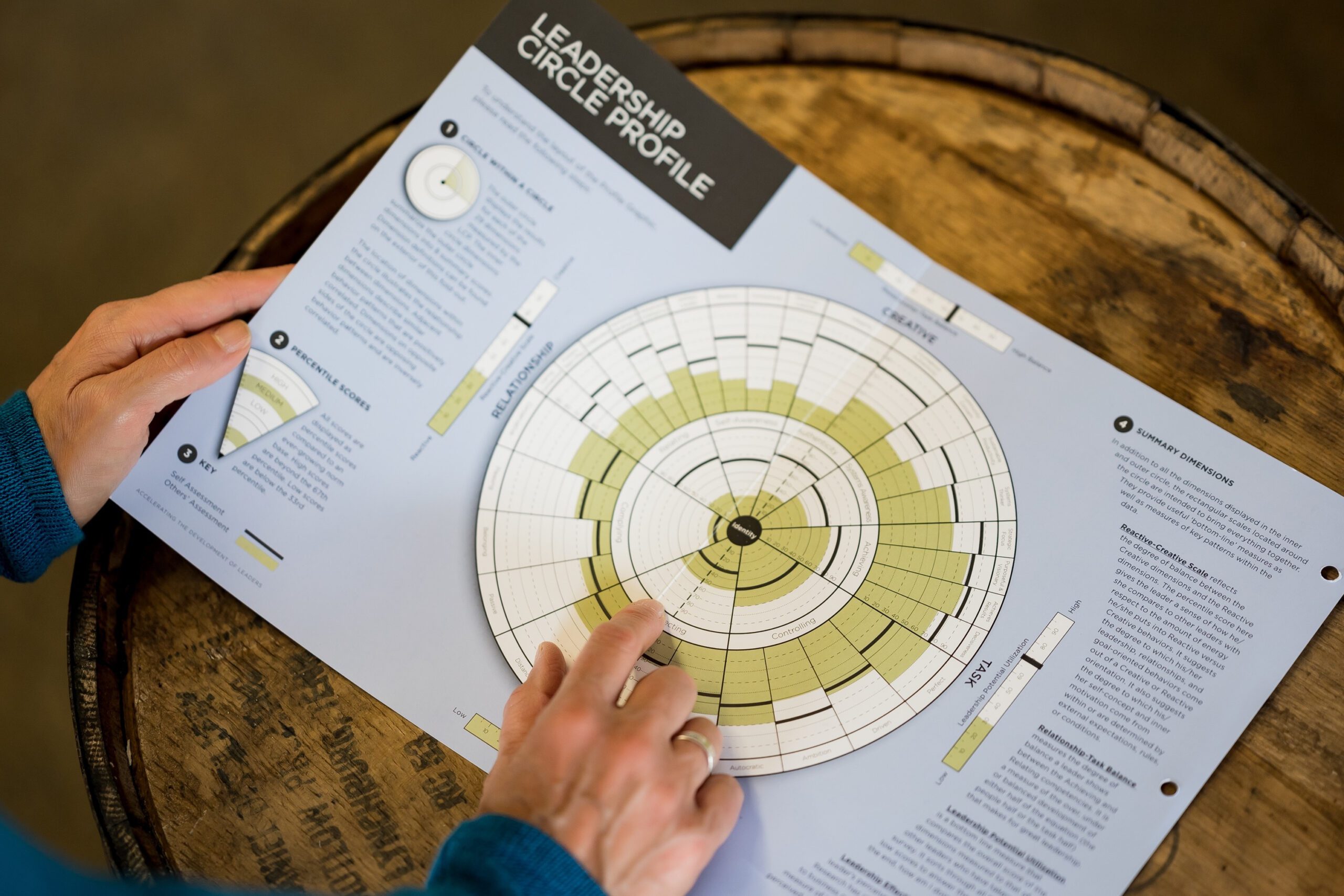Becoming the Leader You Want to Be
< Back to Insights
One of the first pieces of advice I got as a newly credentialed coach was this: get certified in a 360-assessment tool.
“No one makes it as a life coach, Sarah. Organizations will expect you to start with a 360,” a former VP of HR turned executive coach told me.
So I did my research, and the Leadership Circle Profile quickly rose to the top of my list. I flew to Denver with a close colleague to attend their three-day certification training. After spending so much time with other new coaches, it was a welcome shift to be in a room full of seasoned consultants and OD professionals. I remember thinking, This is the advanced class.
Early in the training, the facilitator began explaining the research and theory behind the Leadership Circle. When he got to Robert Kegan’s theory of adult development, he said something that landed with a thud in the room:
“So many leadership books are written as though the reader is already at Stage 4. But research shows that nearly 80% of adults plateau at Stage 3.”
And then came the kicker:
“You can only coach someone at or below your own level of development.”
You could feel the energy shift. Everyone sat up a little straighter. I remember wondering, Wait, what if I’m still at Stage 2? and hoping I might somehow be among the lucky few who had already made it to Stage 4.
That moment gave me a frame for something I had sensed but hadn’t yet been able to name: why coach training had been so demanding, not just intellectually but emotionally and existentially. I had assumed the challenge was about mastering new skills—listening, asking better questions, managing my presence. But there was something deeper going on.
According to Kegan, adult development isn’t just about gaining more knowledge. It’s about transformation: a shift in how we make meaning, how we orient to the world, and how we understand ourselves in relation to others. His theory outlines a series of developmental stages—not just in childhood, but continuing into adulthood—each representing a more complex way of making sense of experience.
Here’s a simplified look at a few of those stages:
- Stage 3 (Socialized Mind): Our sense of self is shaped by external expectations. We define ourselves by our relationships and seek approval from others.
- Stage 4 (Self-Authoring Mind): We begin to develop our own internal belief system and values. We can hold others’ perspectives without being defined by them. We author our lives.
- Stage 5 (Self-Transforming Mind): We recognize the limitations of our own system and become more fluid, able to hold multiple systems and perspectives at once. Fewer people reach this stage.
Most adults—and many leaders—operate from the Socialized Mind, which isn’t “bad” or “wrong.” But leading in today’s complexity often requires the kind of self-authorship and perspective-taking that only comes with further development.
That’s when it clicked for me:
If I wanted to be the kind of coach who could support leaders doing meaningful, transformational work, I had to do that work myself.
I couldn’t fake it. I couldn’t coach someone into a level of consciousness I hadn’t begun to embody.
Leadership development is adult development.
And moving from one stage to the next isn’t something you can will yourself into overnight. It requires discomfort, self-reflection, letting go of old ways of seeing, and staying in the tension until something new emerges. It’s not just learning—it’s becoming.
For me, the work continues. Every conversation with a client is also a conversation with myself.
And that’s the beauty of this path: when we commit to our own growth, we expand our capacity to walk alongside others in theirs.
